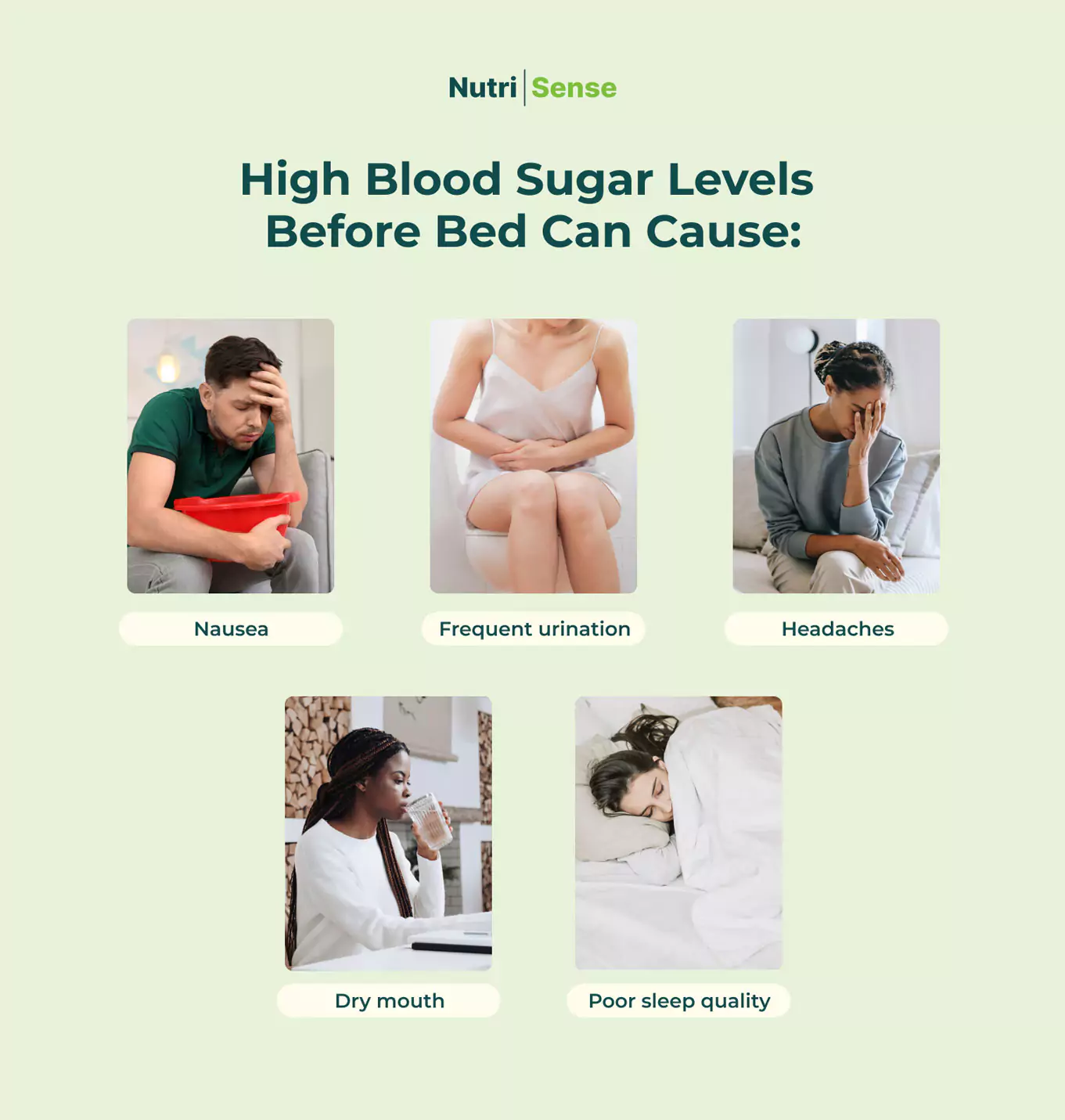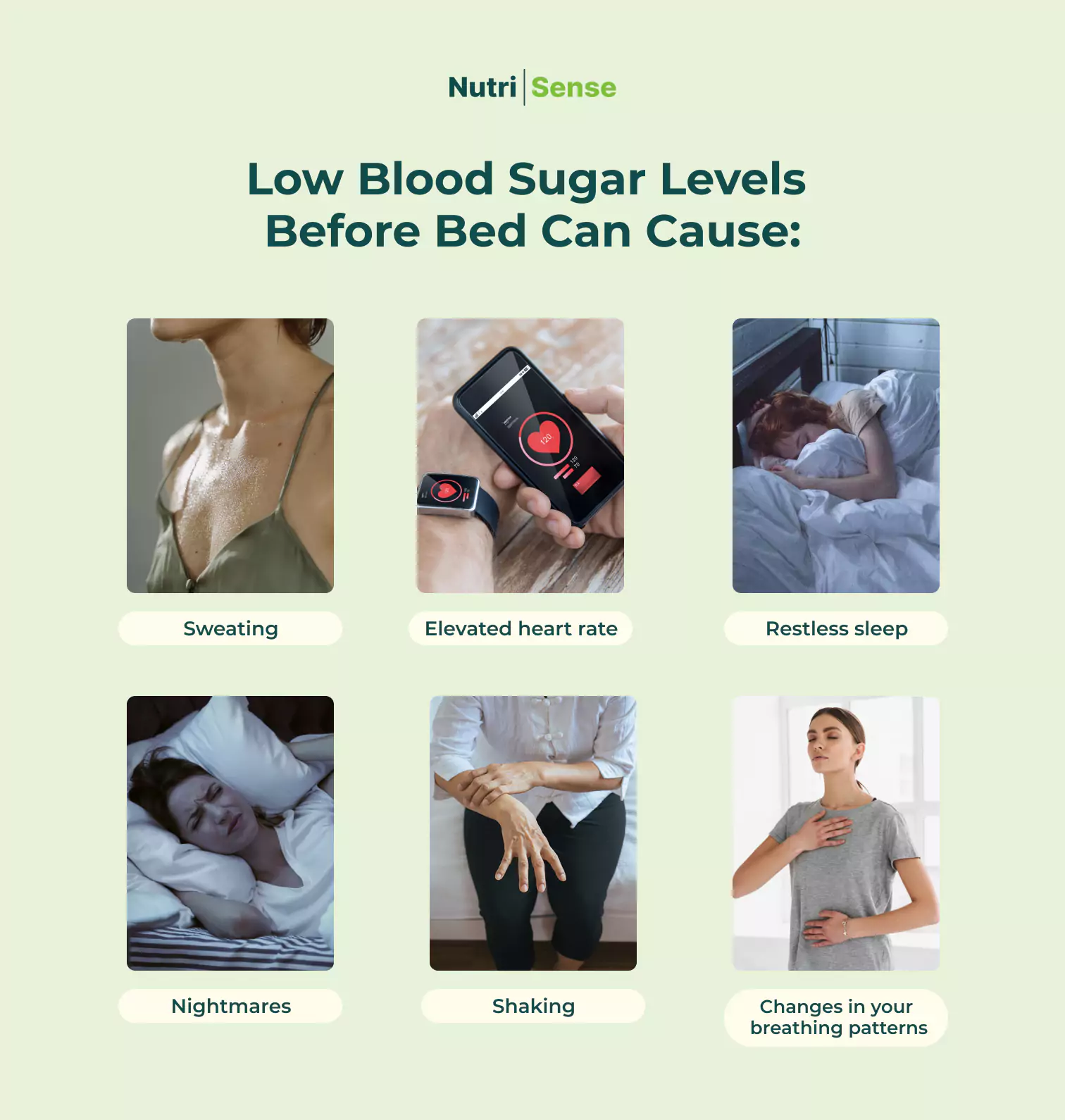What Research Says About Sleep and Blood Sugar Levels

Key Takeaways
Do you ever wonder how sleep and blood glucose are related? It's an interesting question, especially since both are necessary for optimal health. Did you know that getting enough sleep may be just as important for your blood glucose levels as regulating your diet and exercise? And while regulating blood glucose levels is essential for people with type 1 or type 2 diabetes, whether you have diabetes or not, proper sleep is vital for overall well being.
Poor sleep hygiene increases your risk factors for many surprising health problems, from unhealthy weight loss or weight gain to high blood pressure, insulin resistance, and heart disease. And, issues like high blood sugar and cardiovascular diseases associated with poor sleep and sleep deprivation can lead to more sleep disorders and sleep problems like obstructive sleep apnea. So, it's safe to say focusing on healthy sleep patterns is essential!
Recent research has shown that sleep and blood glucose levels are intricately connected. If you're not getting enough sleep, it could be impacting your blood sugar levels. And we already know that poor sleep patterns can also lead to other health problems such as obesity, high blood pressure, and heart disease. Read on to see what happens to your blood sugar levels while you sleep, how to get back to a healthy circadian rhythm, and what the research says on sleep and blood glucose.
What Happens to Your Blood Glucose Levels When You Sleep?

Did you know that your blood glucose levels fluctuate when you sleep? Most people don't, and yet it's vitally important to understand. Unfortunately, many people don't realize how fundamental good sleep habits are for blood sugar control.
It can be critical information for people who have diabetes as they need to know how their blood sugar behaves during different parts of the day. In some people with diabetes, poor sleep may also increase the risk factors of the dawn phenomenon, which refers to an abnormal early-morning increase in blood sugar levels.
Sleep and blood glucose affect each other in what can become a recurring cycle. Typically, your blood sugar levels decrease as you sleep. Sleeping an insufficient amount has been linked to high blood glucose levels or hyperglycemia. So, if you experience a lack of sleep over a long period, you increase your risk factors for blood glucose imbalances and diabetes. That's why it is so important to get enough shut-eye!
What Happens If Your Levels are Too High Before Bed?

It's essential to maintain a healthy blood sugar level throughout the day. However, what happens if your blood sugar is too high before bed? There is a lot of talk about blood glucose levels and what happens when they are too high or low throughout the day. But what about before bed?
Many people don't think about what might happen if they experience elevated blood sugar before bed. Blood sugar levels that are too high before bed can lead to health issues, so it's essential to understand the risks and avoid them. Some of the adverse side effects you may experience include restless sleep, night sweats, and headaches. It's essential to work with your doctor to get your blood sugar under control so you can get a good night's sleep. High blood sugar levels before bed can cause issues like dry mouth, nausea and even frequent and excessive urination throughout the night.

Strategize with your doctor to keep your blood sugar levels down at night. You may want to work with a registered dietitian to balance your diet throughout the day to avoid high glucose levels at night.
What Happens If Your Levels Are Too Low Before Bed?

Especially if you have diabetes (but even if you don't), it's essential to know what to do if your blood sugar gets too low before bed. It can happen for various reasons, such as not eating enough dinner or taking too much of your insulin.
Glucose levels that are too low can make you feel tired, shaky, and sick. Low blood sugar, or hypoglycemia, also interferes with your body's ability to make the most of restorative sleep. For your body to recover from a long day and keep your energy levels up through the next, your blood sugar levels need to stay within a healthy range before bedtime. Low blood sugar levels before bed can cause a range of issues including restless sleep and night sweats!

It can be helpful to talk to your doctor and have a glucagon kit on hand if you suffer from hypoglycemia. If you live with someone who has hypoglycemia and can't wake them up at night, you can administer this medication. It's also vital to get them to a doctor before it develops into a more complex situation. If you are unsure of what to do, call 911 immediately.
What Research Says About Sleep and Blood Glucose

The relationship between sleep and blood glucose is an important one to understand. As we mentioned, poor sleep can lead to changes in blood sugar levels, impacting diabetes control. Conversely, controlling and regulating your blood sugar levels can help ensure a good night's sleep.
Without enough sleep, it's also difficult to focus during the day, manage stress levels, or eat healthily. New research indicates that there may be another important reason to get adequate sleep: blood sugar level regulation. Poor sleep can significantly impact blood sugar levels, leading to increased diabetes risk and other health problems.
This recent research shows that sleep levels have dropped over the past 30 years, and our population has seen an increase in blood sugar level imbalances and instances of diabetes. The findings may help improve treatments for both diabetes and sleep disorders.
Here's a look at some other studies on sleep and blood sugar levels to see why getting enough sleep is so vital for overall wellness:
Impact of Sleep Loss on Glucose
A study released by the U.S. National Library of Medicine and conducted by Kristen L Knutson, Ph.D., suggests that a lack of sleep can cause glucose metabolism impairments. Losing sleep is also found to increase insulin levels. The study also found that a decrease in sleep led to changes in participants' appetite-regulating hormones, leptin, and ghrelin levels, which increased their appetite. These effects could lead to an increased risk of worsening diabetes and obesity.
Sleep Deprivation Can Increase Risk Factors for Diabetes
In 2016 a study was conducted to check for a link between sleep duration and the risk of diabetes. It identified a link between sleep disorders and the development of diabetes. Researchers noted this as alarming in the United States. It's likely because approximately one-third of people in the U.S. suffer from insufficient sleep and/or sleep apnea.
Later Bedtimes Can Affect Blood Glucose Levels

Does it matter whether you prefer early mornings or late nights? Research on whether being a night-owl is all that bad for you is ongoing. Still, a recent study published in the European Association for the Study of Diabetes suggests links between sleep timing and blood sugar levels.
It found that later bedtimes may be directly related to higher blood glucose levels and blood glucose imbalances after meals. The study also found that more extended sleep periods were associated with lower blood glucose responses after high carbohydrate meals.
Sleep Deprivation May Affect Metabolism
A study released in 2015 by UChicago Medicine found that insufficient sleep is related to elevated levels of fatty acids in the bloodstream. These high levels were in tandem with pre-diabetes in young men. It was the first study to examine the relationship between fatty acids and blood glucose concerning sleep. Researchers believe that insufficient sleep and poor sleep patterns may disrupt fat metabolism and insulin regulation.
Improve Your Quality of Sleep

Sleep is a vital function for overall health and wellbeing. Not getting enough sleep may affect everything from your eating habits to glucose tolerance. So, harmful sleep patterns can become a vicious cycle that hurts your health. But by understanding more about how sleep affects blood glucose, you can make changes in your daily routine to improve your health and wellbeing. Here are a few tips to start with:
Focus on Good Dietary and Lifestyle Choices
What you eat and how much activity you have can determine how well you sleep. Poor food choices and too much exercise can lead to drops in blood sugar during the night, making it difficult to stay asleep or fall back asleep.
Turn to Technology

Using a tool like a continuous glucose monitor (CGM) can be helpful when it comes to fixing poor sleep hygiene. It can help you monitor your blood glucose levels 24/7 and identify trends in your habits to get back to a healthy sleep pattern.
Stick to a Schedule
By sticking to a regular sleeping schedule, your body will fall into a better rhythm, allowing you to get a better night's sleep.
Work With a Professional

Always be 100 percent transparent about small details with your doctor, especially if you're suffering from blood glucose imbalances, type 1, or type 2 diabetes. They can help you improve your quality of life and recommend working with other professionals, like a registered dietitian.
Find the right Nutrisense programto turn insight into progress.
Go Beyond Glucose Data with Nutrisense
Your glucose can significantly impact how your body feels and functions. That’s why stable levels are an important factor in supporting overall wellbeing. But viewing glucose isn't enough. Nutrisense, you’ll be able to learn how to use your body's data to make informed lifestyle choices that support healthy living.
One-to-one coaching
Sign up to access insurance-covered video calls to work with a glucose expert: a personal registered dietitian or certified nutritionist who will help tailor your lifestyle and diet to your goals.
Monitor and measure what matters
With the Nutrisense CGM Program, you can monitor your glucose with health tech like glucose biosensors and continuous glucose monitor (CGM)s, and analyze the trends over time with the Nutrisense App. This will help you make the most informed choices about the foods you consume and their impact on your health.
Find your best fit
Ready to take the first step? Start with our quiz to find the right Nutrisense program to help you take control.

Natalie received her degree in Dietetics from Mansfield University and a Master’s in Clinical Nutrition from the University at Buffalo. Her career has included nutrition education and program development in her local community, adjunct faculty at several collegiate institutions, and clinical nutrition in both inpatient and outpatient settings.




